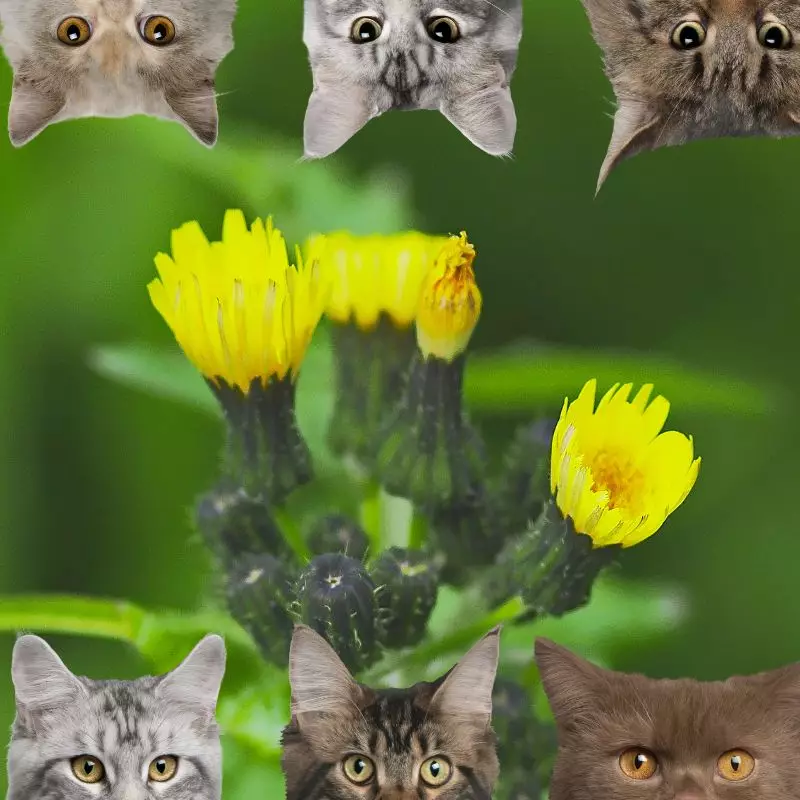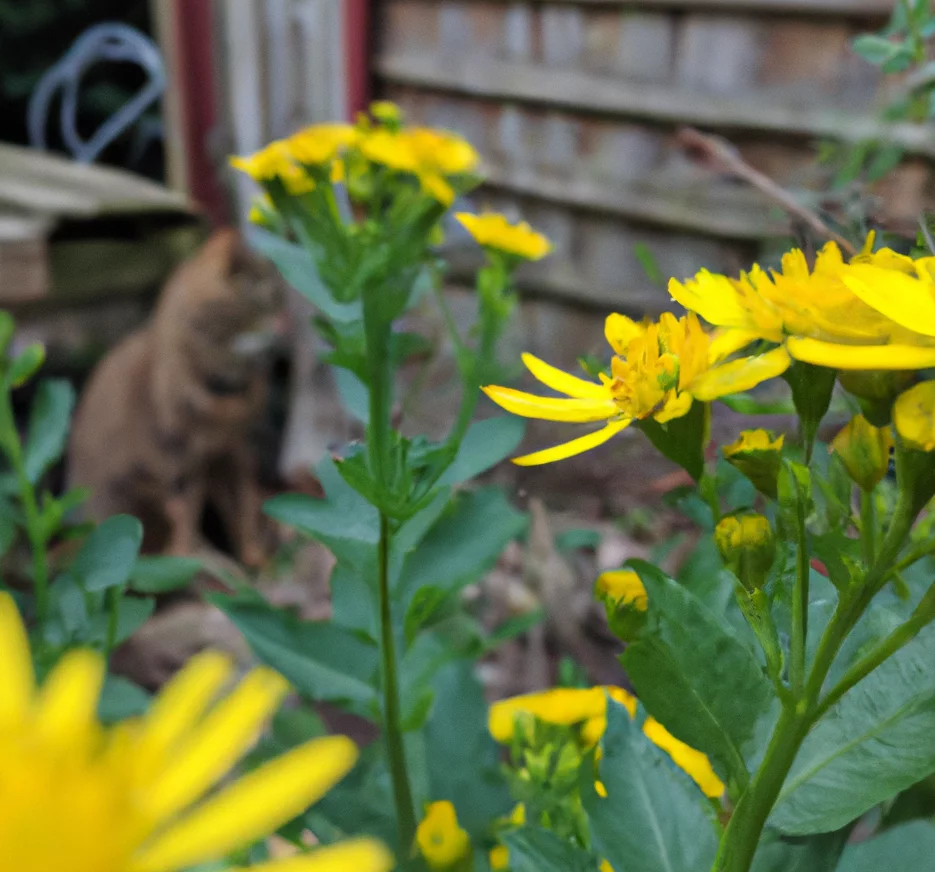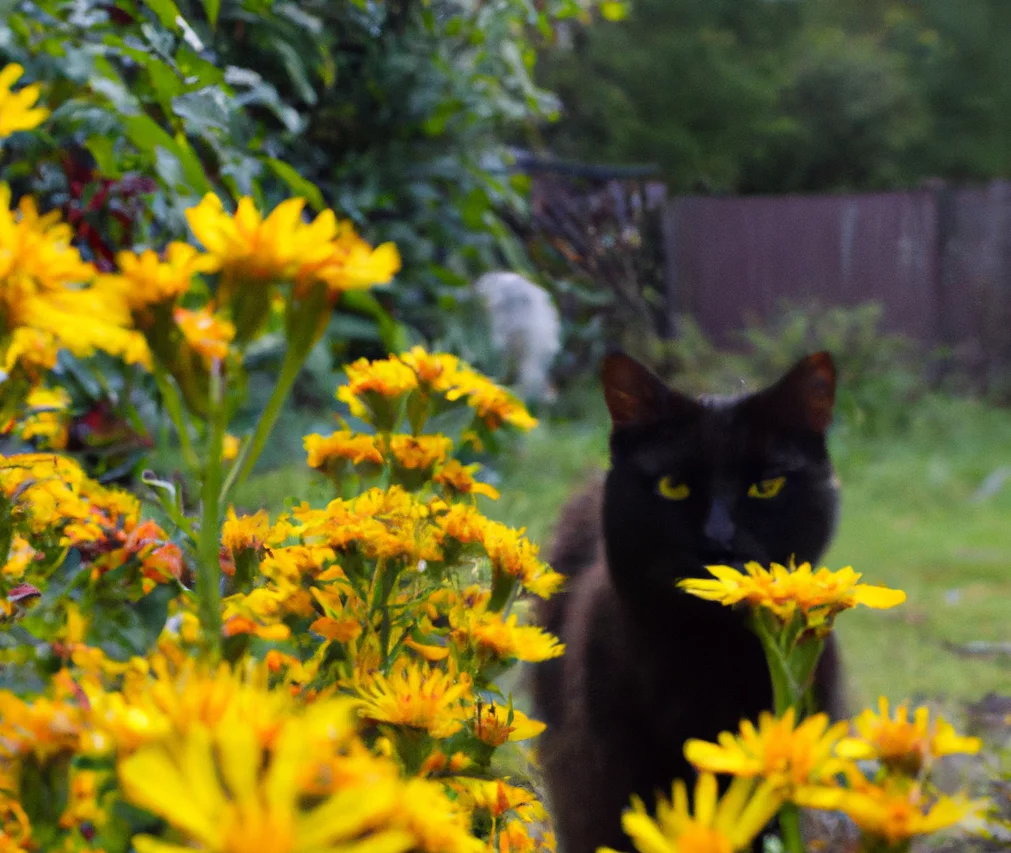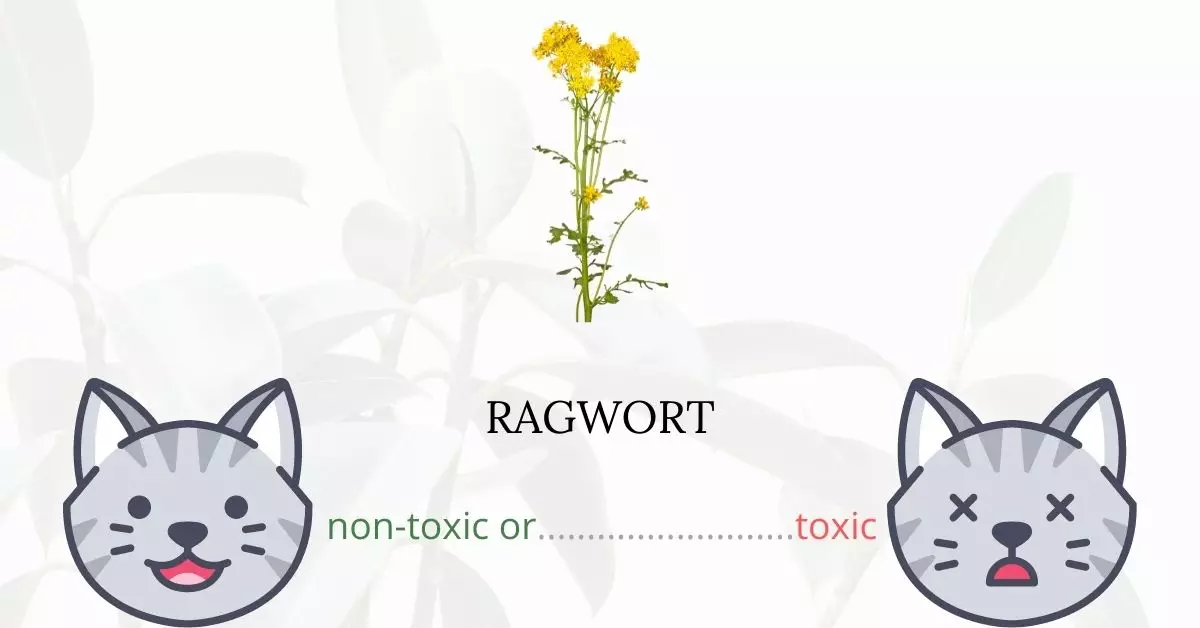Yes, Ragwort, scientifically known as Jacobaea vulgaris and also known by names such as cress leaf groundsel and butterweed, is indeed toxic to cats. Consumption of the leaves and blooms of this plant can cause severe health implications in cats. It is crucial to note that younger plants pose more significant risks than older ones due to the higher concentration of toxic compounds.
To ensure the credibility and reliability of the information provided in this article, we collaborated with a team of experienced Doctors of Veterinary Medicine (DVMs). Their expertise and insights enable us to offer accurate and up-to-date information on the potential risks associated with various plants, including Ragwort, and their impacts on cats. Additionally, we have conducted extensive research through high-authority websites such as ASPCA and PetMD to corroborate the information provided and to delve deeper into the understanding of the effects of each plant on animals.
The primary toxic constituents of Ragwort are pyrrolizidine alkaloids, chemicals known to cause liver failure, which can lead to death if left untreated. The plant’s leaves, seeds, and blooms are all poisonous to animals, with cats being notably susceptible. While the plant generally has an unpleasant taste which may deter your cat from consuming it, any consumption requires immediate emergency medical attention to prevent the escalation of health complications. Keep in mind, even minimal consumption of this plant can lead to severe health issues, so it is pivotal to act swiftly if ingestion is suspected.
Clinical Signs of Ragwort Poisoning in Cats

Even though ragwort generally has an unpleasant taste, cats might still be attracted to consume it due to its appearance or scent. Upon ingestion, exposure, or even being in close contact with the Ragwort plant, a cat may exhibit several clinical signs as the plant’s toxins begin to affect its system. Each symptom is a manifestation of the body’s reaction to the pyrrolizidine alkaloids present in the Ragwort, primarily targeting the liver and impacting overall well-being. Below is a description of each sign and the underlying causes:
- Loss of Appetite (Anorexia): Cats may experience a loss of appetite due to the body’s natural response to ingested toxins, leading to nausea and a refusal to eat. This is the body’s way of preventing the ingestion of more toxins.
- Diarrhea and Vomiting: These are the immediate bodily reactions aimed at expelling the consumed toxins. Diarrhea and vomiting are indicative of gastrointestinal irritation due to the toxins in ragwort.
- Muddy Mucous Membranes: The appearance of muddy mucous membranes is due to compromised liver function, affecting the blood’s ability to clot and leading to abnormal tissue coloration.
- Poor Hair Coat: A dull, lifeless coat is often a sign of poor health and malnutrition, which can result from the body’s inability to process nutrients due to liver damage.
- Behavioral Changes: Behavioral alterations, such as lethargy or aggression, can be attributed to the discomfort and pain experienced by the cat as a result of poisoning.
- Sunburn of Hairless Areas of the Body: Damaged liver can affect the skin’s health, making it more susceptible to sunburn, especially in areas with less or no fur.
- Body Weakness: As the toxins affect the cat’s internal organs, there will be a notable decrease in energy levels, causing overall weakness.
- Ataxia (Loss of Control of Body Movements): This occurs due to the impact of the toxins on the nervous system, disrupting normal coordination and movement.
- Liver Damage: The pyrrolizidine alkaloids in ragwort are notably hepatotoxic, leading to liver damage, which, if untreated, may result in the liver’s inability to process toxins and perform its other vital functions.
These symptoms can appear suddenly and may last from a few days to a week, depending on the amount consumed and the promptness of the medical intervention received. Immediate attention and treatment are critical, as prolonged exposure to the toxins can lead to irreversible damage and, in severe cases, may be fatal.
First Aid and Treatment of Ragwort Poisoning in Cats

Supportive and symptomatic treatment for your cat will be used. The vet will make your cat vomit so that any leftover ragwort in its stomach may be removed. Your cat will also receive activated charcoal treatment, which will allow any lingering toxins to adhere to the charcoal and be safely removed from its body. The veterinarian will treat the animal’s symptoms and perform thorough decontamination. This includes stomach pumping or gastric lavage.
You won’t know what’s causing your cat’s symptoms until the vet connects all of the dots, because symptoms appear unexpectedly. As a result, liver failure symptoms will emerge. Unfortunately, if your cat’s disease isn’t caught early enough, the damage to its liver will be permanent. Because your cat’s health will not be restored, treatment will be supportive. Its health will deteriorate over time, and care will be focused on ensuring the cat’s comfort.
Recovery from Ragwort Poisoning in Cats

The poisoning of your cat by golden ragwort will have a long-term effect on his health. You’ll be able to take it home, but all you’ll be able to do is offer supportive care and make it comfortable.
Return to your veterinarian for treatment if you detect anything that indicates it is becoming worse. If the poisoning is severe or the animal’s condition worsens, humane euthanasia may be considered.
Prevention of Ragwort Poisoning in Cats
If you let your cat out in the yard, it might come across a patch of ragwort and start nibbling. It prefers bare ground and is difficult to eliminate. If any are present, have a professional landscaper apply weed killers to all areas between late October and early November. These treatments work best before the plant starts growing and flowering in the spring. You must keep your cat indoors and away from any areas where ragwort has been treated so that it does not consume the poisons.
If you love plants but have cats at home, check out these lists:





